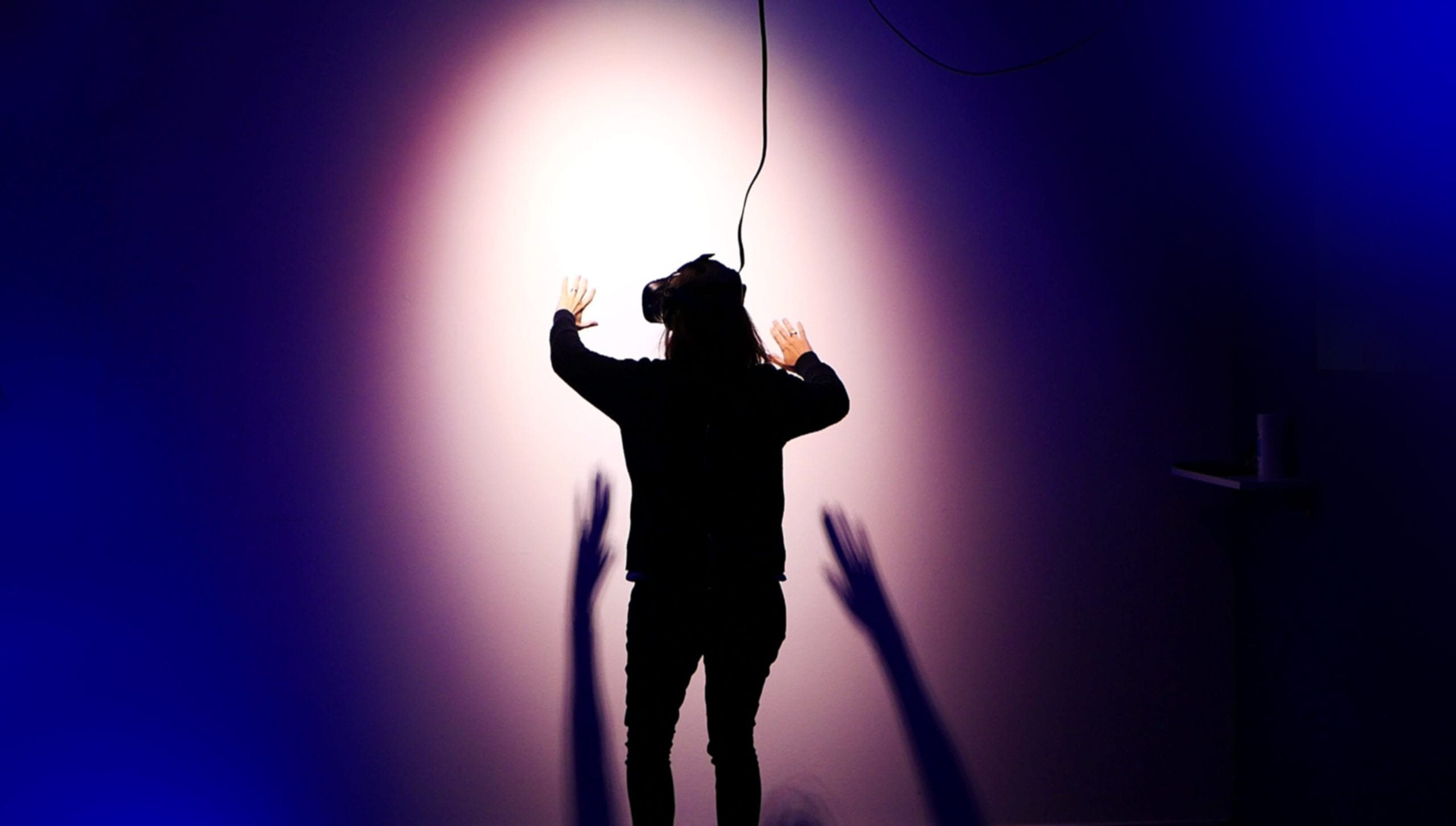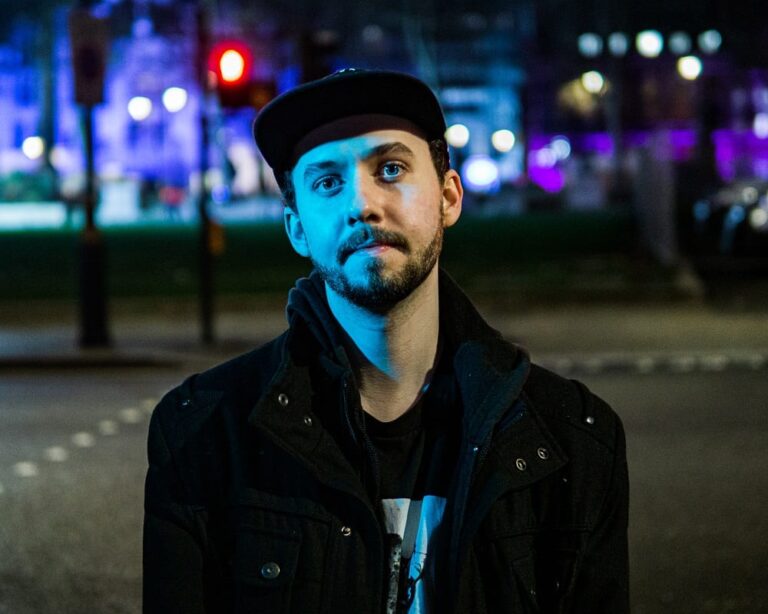The year is 2050 and you want to go to Glastonbury Festival: £600 for a weekend ticket, £1,200 for a virtual reality ticket. Physically attending the festival has become something for purists who resist technology and crave the ‘real’ (although nowadays indistinguishable) social interactions of the past. The majority of our interpersonal contact now happens online or through VR experiences, but most of society doesn’t mind as near-eye displays and advanced haptic technology can now perfectly replicate any imaginable experience for anyone, anywhere.
As such, the ‘old school’ physical weekend ticket is seen as inferior to the multifaceted VR ticket. VR ticket holders have the option of a personalised AI guide that can calculate exactly which performances they will enjoy the most and when. Infinitely customisable options enable wild augmentations of visuals, performances and experiences that the lowly minds of 2020 can’t even begin to comprehend. VR attendees can access the festival from anywhere in the world as if they were there. Those that buy a weekend ticket have to camp in the mud and trek all the way from John Peel to Shangri-La? Sucks to be them.
That vision of Glastonbury 2050 is just a fabrication, but it’s not an implausible forecast. You might think I’m being unrealistic, but if we observe current trends and take them to logical conclusions, a future like this doesn’t seem all that distant. Let’s consider the events of 2020 that have had to bring their previously physical offerings online due to the coronavirus lockdown.
Glastonbury’s Shangri-La is staging the Lost Horizon virtual festival next weekend, Goat Shed’s epic Stay At Home Festival saw D&B’s top artists live streaming DJ sets to raise money for the NHS and Koven made a virtual reality nightclub, not to mention the countless other live streams and online events appearing across the Internet by the day.
Many event coordinators have had to think of ways to deliver their projects digitally, however virtual events are nothing new. We are more aware of them now that lockdown has forced us down that road, but it’s important not to overlook the industry’s natural impetus to virtualise even before COVID-19 entered the equation. In other words, events of the future have always been destined to integrate with new technology.
As with Koven’s nightclub concept, virtual reality is already making serious headway in the world of events. The Winter Olympics was broadcasted live in VR for the first time in 2018 and the USA’s Burning Man has been running its dedicated virtual festival Burn2 since 2003. Thanks to the Internet, our social interactions rely less on physical proximity so it comes as no surprise that we’ve found ways to socialise and engage with events digitally.
In contrast to VR, AR (augmented reality) is when virtual elements are superimposed onto real-life environments (remember Pokémon Go?). Eerie 3D holograms have graced stages many times now, like when the real-life Snoop Dogg appeared with a posthumous 2pac at Coachella 2012. U2’s 2018 tour heavily incorporated AR visuals to be activated via smartphone and the virtual band Gorillaz rely on ‘performing’ via hologram.
This article from 2013 suggests that music festivals could introduce “virtual extensions” to make additional ticket sales. Imagine a hypothetical Glastonbury 2021: £280 for a full weekend ticket, £50 for a ‘VR ticket’. Your VR ticket gives you access to 360° cameras placed by the stages so you can ‘be there’ by tuning in with a VR headset. This option could include additional content like backstage interviews and chat rooms to interact with other festivalgoers. Potentially limitless VR ticket sales could add to Glastonbury’s revenue indefinitely.
The implications of this concept are massive. Any event that sells out would still have the opportunity to sell tickets, and those that struggle to attract the local footfall they need could host punters from anywhere on the planet. Admittedly, it’s hard to envisage being tempted by a virtual Glastonbury ticket (it’s all on the BBC anyway, right?), but what about when technology gets so good that we can put a headset on and see, hear, feel the space as if it were real? If that sounds far-fetched, think about trying to tell someone 20 years ago what iPhone’s can do today. They’d have called you liar (probably by SMS on their old Motorola housebrick mobile)
Even today, near-eye displays are being developed to project augmented reality visuals directly onto your retina. It’s early days for this technology, but as it matures it could combine with VR and ultramodern connectivity capabilities. Computer processing power and artificial intelligence continue to improve at a frankly terrifying rate. When we picture all of these ideas together, the possibilities start to seem literally endless.
If you really want to envision the Black Mirror-esque world we are careening towards then look up ‘ubiquitous computing’. Coined by Mark Weiser in 1988, he describes a world where almost everything around us is a computer device, connected both to the Internet and to every other device in the world (hey Alexa…). Some see this as the apex of human ingenuity, others a cyberpunk nightmare. There’ll always be Luddites that resist new technology, but the unrelenting nature of its advance will push it forwards like it always has, making futures like this seem realistic.
There are other immediate benefits of going virtual, too… Digitised events lend to environmentalist visions of the future, recognised as “one of the most sustainable ways you can host an event today”. The drop in pollution during lockdown shows us what can happen when we cut non-essential travel, which leads me to think how many of our events, meetings and conferences really need to be physically staged.
Virtualisation can also help us to make events accessible for people of all abilities. Some wheelchair users, for example, might be reluctant to attend a festival like Glastonbury, so VR capabilities could be a step towards a more inclusive events industry. If my vision of Glastonbury 2050 sounded like a techno-dystopia to you, consider the people that would have access to the event that wouldn’t have otherwise.
Shangri-La’s VR festival next weekend probably won’t resemble my futuristic Glastonbury projection, but I do think it’s a step in that direction. Furthermore, it’s a step in that direction that has been accelerated by lockdown. If Glasto 2020 had gone ahead, the organisers would not have curated a VR festival of this scale. It’s one example of instigating a digital event that wouldn’t have happened were it not for lockdown.
Previously people will only have made progress in this area intentionally, but lockdown is giving so many of us accidental experience that we can carry with us once it is over. Public awareness of virtual projects has also increased, so our collective journey towards the future of events has arguably been accelerated by years. This isn’t to say we should be kissing physical gatherings goodbye (I’ll be heading front-left the second it is safe to do so…). If anything, this lockdown period has given us a glimpse of how technological innovations will inevitably shape the events of the future.


